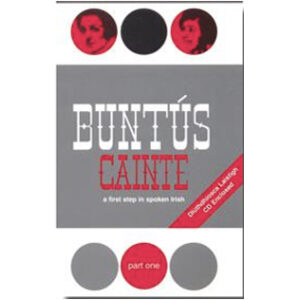What pains the heart must be washed away with tears.
Note: It is interesting to contrast this Celtic sentiment with the Saxon stiff upper lip. It is very British to respond to grief by taking control over it, by suppressing the emotion. Real men do not cry. It is an Imperial attitude. Even the language reflects this emotional Imperialism. In English, one says, “I am sorry,” as if you were telling someone your name, as if it were part of your identity. Since I am rational being, “sorry” is my rational response to the situation.
On the other hand, the Gael says, “Tá brón orm,” for “I am sorry.” Literally, it means “Sorrow is on me.” It is something with which I have no control. It is a burden from beyond, like a sickness. The only way to unload this burden is to let the tears flow. A more literal translations of this week’s proverb would be: The eye must drain what pains the heart. The phrase “sileadh súl” (literally draining an eye) is a common idiom for “weeping.” Koobler-Ross and others have shown that this attitude towards grief is more healthy than to remain in denial indefinitely.
